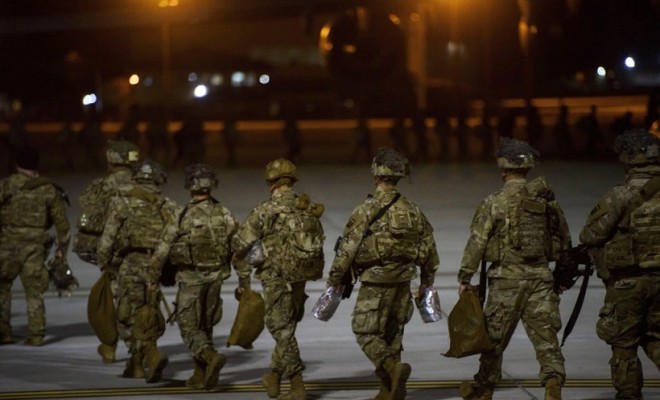
How pandemics are worse than wars
What happens after a war? Two weeks ago, I asked that question and came away cautiously optimistic about America’s ability to bounce back from its current crisis. Now, I’m not so sure.
Why it matters: Wars are (generally) over when they’re over; then the post-war rebuilding can begin. Pandemics don’t work that way; their effects reverberate for decades.
What’s happening: Billions of people around the world are living in fear of a lethal and invisible enemy. They’re sequestering themselves inside their homes and avoiding other human contact not just because they are being told to do so by their governments, but also because they have internalized the need to do so out of simple self-preservation.
- Extreme measures are popular. 74% of Jordanians approveof their government’s measures, which started with a round-the-clock curfew. (The curfew now lasts from 6 pm until 10 am, and driving is banned during the day.)
- New Zealand’svery strict lockdown is also popular.
Between the lines: “Getting righteous about other people’s inadequate social distancing is how we manage our fear,” Leslie Jamison writes in the NYRB. (That, too, is visible in New Zealand, as well as all over Twitter.)
- Righteousness requires self-certainty. Once people are certain of something, it takes years for those heuristics to decay. A mistrust of mingling with strangers — or even with friends — is likely to linger for a generation.
- That’s going to have long-lasting economic repercussionsin entertainment, sports, hospitality, travel (including mass transit), and myriad other sectors.
- Even a vaccine won’t end the fear. Vaccines aren’t 100% effective, viruses mutate, and fear is not governed by rational calculation.
The big picture: Americans who lived through the Great Depression were scarred for life by the experience, and exhibited a level of caution and frugality that only their boomer children would eventually overcome.
- After the coronavirus crisis,we’re similarly likely to enter what Allianz economic adviser Mohamed El-Erian characterizes as a “greater emphasis on resilience and a move away from efficiency.”
- Economically speaking,that’s likely to weigh on any recovery, making it risk-averse and sluggish.
- Unlike a war’s V-Day,the end of the pandemic won’t be greeted with euphoria. It won’t even be possible to pinpoint when the end arrives.
The bottom line: It’s easier to switch an economy off than to switch it on.
Πηγή: axios.com




